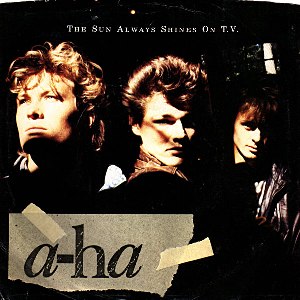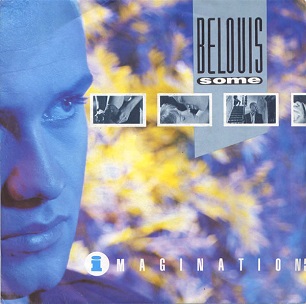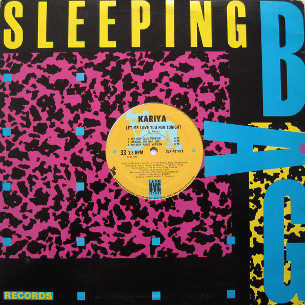
The Fat Boys were an American hip hop trio from Brooklyn, New York, who emerged in the early 1980s. The group was briefly known originally as the Disco 3, originally composed of Mark "Prince Markie Dee" Morales, Damon "Kool Rock-Ski" Wimbley, and Darren "Buff Love" Robinson.

The UK singles chart is compiled by the Official Charts Company (OCC), on behalf of the British record industry, listing the top-selling singles in the United Kingdom, based upon physical sales, paid-for downloads and streaming. The Official Chart, broadcast on BBC Radio 1 and formerly MTV, is the UK music industry's recognised official measure of singles and albums popularity because it is the most comprehensive research panel of its kind, today surveying over 15,000 retailers and digital services daily, capturing 99.9% of all singles consumed in Britain across the week, and over 98% of albums. To be eligible for the chart, a single is currently defined by the OCC as either a "single bundle" having no more than four tracks and not lasting longer than 25 minutes or one digital audio track not longer than 15 minutes with a minimum sale price of 40 pence. The rules have changed many times as technology has developed, with digital downloads being incorporated in 2005 and streaming in July 2014.

Belouis Some is a British singer, songwriter and musician. He had UK and worldwide hits in the 1980s with "Some People", "Imagination" and "Round, Round", the latter being featured on the soundtrack for the John Hughes film Pretty in Pink. "Some People" and "Imagination" charted on the U.S. Billboard Hot 100 in 1985.

"The Sun Always Shines on T.V." is a song by Norwegian synth-pop band a-ha, released as the third single from their debut studio album, Hunting High and Low (1985). The song was written by guitarist Pål Waaktaar. In some commercial markets the single was not as popular as their previous (debut) single "Take On Me", which had reached the top spot in the United States and several other countries around the world, but in the United Kingdom and Ireland it improved upon the number-two charting of "Take On Me", reaching number one on the UK Singles Chart for two weeks in January 1986, having been released there on 16 December 1985. Its success secured for the band the prestige of having number-one single status on both primary Anglo-American popular music charts on either side of the Atlantic.
"The Phantom of the Opera" is a song from the 1986 stage musical of the same name. It was composed by Andrew Lloyd Webber, with lyrics written by Charles Hart and Richard Stilgoe, and additional lyrics by Mike Batt. The song was originally recorded by Sarah Brightman and Steve Harley, which became a UK hit single in 1986, prior to the musical. In its theatrical debut, it was sung by Brightman and Michael Crawford in their roles as Christine Daaé and the Phantom.

"Merry Xmas Everybody" is a song by the British rock band Slade, released as a non-album single in 1973. The song was written by lead vocalist Noddy Holder and bassist Jim Lea, and it was produced by Chas Chandler. It was the band's sixth and final number-one single in the UK. Earning the UK Christmas number one slot in December 1973, the song beat another Christmas-themed song, Wizzard's "I Wish It Could Be Christmas Everyday", which reached fourth place. It remained in the charts for nine weeks until February 1974.

"Pale Shelter" is a song by the British band Tears for Fears. Written by Roland Orzabal and sung by bassist Curt Smith, it was originally the band's second single release in early 1982. The original version of the song, entitled "Pale Shelter (You Don't Give Me Love)", did not see chart success at the time of its original UK release. However, it did later become a top 20 hit in Canada and a top 75 hit when it was reissued in the UK in 1985.

"Target Practice" is a song by British musician Belouis Some, released on 21 May 1984 as his first major label single after his 1981 debut "Lose It to You". The song was written by Some, and produced by Peter Schwier and Ian Little.

The following is a comprehensive discography of Gary Numan, a British singer and musician. Numan released his first record in 1978 as part of the outfit Tubeway Army. Initially unsuccessful, the band scored a huge hit in 1979 with the single "Are Friends Electric" and their second album Replicas, both of which reached number one in the UK. Numan then decided to release further recordings under his own name, beginning with the single "Cars" later in 1979. Both this and the subsequent album The Pleasure Principle also reached number one in the UK, and Numan became a leading force in the British electronic music scene. He scored a third number one album in 1980 with Telekon, and more hit singles and albums until the mid 1980s when his popularity waned. Despite this, he has continued to record and tour on a regular basis up to the present day. His 2017 studio album, Savage , entered the UK Albums Chart at no. 2, which was Numan's highest chart peak since 1980. His most recent album, 2021's Intruder, also entered the UK charts at no. 2.

"Imagination" is a song by British musician Belouis Some, from his 1985 debut album Some People. Upon its first release as a single in the UK in 1985, the song only managed to chart at No. 50, but a re-release proved more successful, hitting the top 20 and peaking at No. 17 on the UK Singles Chart in February 1986. In the U.S., the song reached No. 88 on the Billboard Hot 100 in May 1985.

"Animal Magic" is a song by English new wave musician Belouis Some, from his 1987 self-titled second album. Released as the second single from the album, the song reached No. 6 on the U.S. Hot Dance Club Play chart. A popular club remix appeared on the U.S. 12" release on Capitol Records, with remix and additional production by Justin Strauss and Murray Elias.

"Let It Be with You" is a song by British musician Belouis Some, released as a single from his 1987 self-titled second album. The song reached No. 53 on the UK Singles Chart, and No. 13 on the U.S. Hot Dance Club Play chart.
"That Ole Devil Called Love" is a song written in 1944 by Allan Roberts and Doris Fisher. It was first recorded by Billie Holiday, who released it as the B-side of her hit "Lover Man" in 1945.

Belouis Some is the second studio album by the British new wave musician Belouis Some, which was released in 1987.

"African and White" is the debut single by English new wave band China Crisis. It was released in 1982 on Inevitable Records. A remixed version of the song was reissued as a single by Virgin Records in 1982 and became the band's first appearance on the UK Singles Chart, peaking at number 45 in August 1982. The song is included on the band's debut studio album Difficult Shapes & Passive Rhythms, Some People Think It's Fun to Entertain (1982) and on several compilation albums.

Some People is the debut studio album from British musician Belouis Some, released in August 1985.

"Soul Passing Through Soul" is a song by British singer Toyah Willcox, released as the second single from her album Minx in 1985 by Portrait Records.

"Jerusalem" is a song by British singer and songwriter Belouis Some, released in 1986 as the fourth and final single from his debut studio album Some People. It was written by Belouis Some, and produced by Pete Schwier, Steve Thompson, Michael Barbiero and Belouis Some. "Jerusalem" reached No. 98 in the UK and remained in the charts for one week.

"Some Girls" is a song by British singer and songwriter Belouis Some, released in 1988 as the third and final single from his second studio album Belouis Some. It was written by Belouis Some and Carlos Alomar, and produced by Gary Langan and Guy Fletcher. "Some Girls" reached No. 76 in the UK and remained in the charts for four weeks. A music video, filmed in Milan, was produced to promote the video.

"Let Me Love You for Tonight" is a song by American singer Kariya, which was released in 1988 as her debut, non-album single by Sleeping Bag Records. It was written by Jerry Ferrer, and produced by Bob and Jerry Ferrer.


















